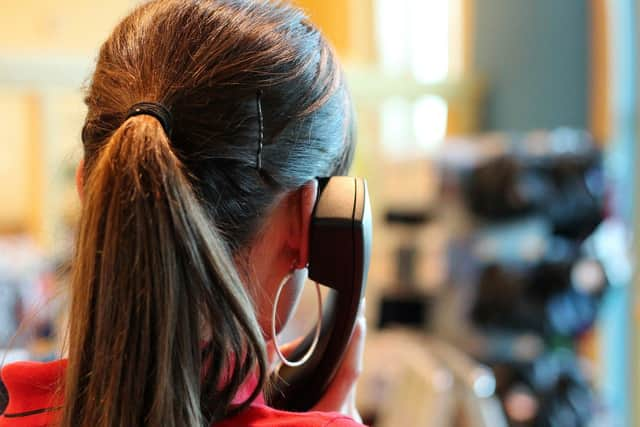Drop in number of 111 calls in Lincolnshire eases pressure on the NHS
and live on Freeview channel 276
Though the volume of calls across England remains higher than usual, think tank the Nuffield Trust said the data suggests pressure on the NHS is easing following the first wave of the coronavirus crisis.
NHS England data shows Lincolnshire 111 helpline received 24,209 calls in May.
Advertisement
Hide AdAdvertisement
Hide AdThis was a slight decrease on the calls received in April, but still seven per cent more than in May 2019.


The proportion of calls answered within 60 seconds meanwhile rose from 44 per cent to 76 per cent between April and May.
Calls to helplines across England dropped slightly to 1.6 million in May, compared to 1.7 million in April, but demand was 12 per cent higher than in the same month last year.
Sarah Scobie, the Nuffield Trust’s deputy director of research, said the value of digital services such as NHS 111 had become clear during the Covid-19 pandemic.
Advertisement
Hide AdAdvertisement
Hide AdShe said: “The increase in calls coupled with the dramatic falls in GP appointments and people turning up at accident and emergency units show how important digital services have become to help people access care.
“People are continuing to make careful choices about how they access the NHS.
“As the NHS looks to resume more services, it will need to continue developing remote services to support traditional face-to-face care where possible.”
New research commissioned by the Health Foundation charity revealed 47 per cent of people said they would feel uncomfortable using their local hospital if they needed to in May, with the majority of them concerned about exposure to coronavirus.
Advertisement
Hide AdAdvertisement
Hide AdTim Gardner, senior policy fellow at the charity, said: “The Government and the NHS must work together to ensure people can use health services without putting themselves at increased risk of catching the virus.
“Adequate supplies of PPE, reliable testing, and a track and trace system that is fit for purpose are absolutely vital as the NHS starts to get services back up and running.
“This will be essential in reassuring the public that the NHS is a safe place for them to get the care they need.”
Separate figures show NHS 111 services in the NHS Lincolnshire CCG area have seen a huge drop in the average number of coronavirus symptoms being reported daily.
Advertisement
Hide AdAdvertisement
Hide AdBetween March 18 and May 18, there was a daily average of 551 cases.
However, NHS Digital said this may have been an overestimate as symptoms of coronavirus overlap with those of other infections, such as colds and flu.
It said a more accurate diagnosis has been achieved since then, with the daily average in the area falling to just 104 between May 19 and June 9.
An NHS spokesman said the 111 online and phone systems have played a key role in the health service’s response to the most significant challenge in its history.
Advertisement
Hide AdAdvertisement
Hide AdHe added: “It is to be expected that calls and online checks by members of the public will fall as we pass through the first peak of the virus, but 111 should continue to be the first port of call for urgent health needs.
“Its trained staff, supported by nurses and GPs, can now book you a slot at your local pharmacist, GP, or Urgent Treatment Centre, so you or your family can get the right care in the safest and most convenient way.”